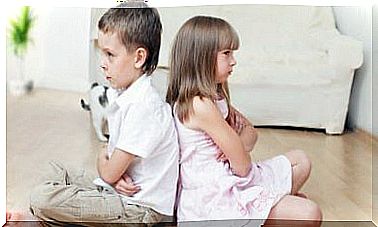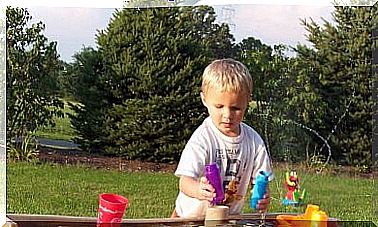Child Rebellion: Causes And Solutions

Rebellion? Why do we choose this word to talk about the difficulties that children encounter, at certain times in their lives, with following the instructions given by their parents? Wouldn’t it be a good substitute for the word rebelliousness : “questioning attitude”, ” how to make my parents understand that something in me has changed ”or even“ I am becoming autonomous ”?
Children go through very rapid changes throughout childhood. The younger they are, the faster the changes. A child between 0-3 years goes through more changes than a child between 8-11, for example. This condition typical of childhood adds another factor of difficulty for parents: accompanying that rhythm.
Mistakes to avoid
Today’s parents, feeling unable to control the changes experienced by their children, commonly turn to books or an expert to understand them.
The point is, getting in touch with so much information can be confusing for adults.
For example, at some point in time, our child with “rebellion” may be demanding some parental intervention in the sense of limiting them, and, having read that book that says that this is a normal phase, we do nothing.
We have to be very careful with the concept of phase. It is common to see mothers who are very distressed about not being able to handle some behavior of their child, who have read somewhere that this is a phase, and who are reassured because “that will pass.”
The problem there is that parents then do not get involved in what is happening to their children. And they wait for such a “phase” to go away.
Yes, it is true that children act very similarly at certain ages. All babies like to hide and reappear, all babies and older children like to throw objects on the ground, it is even studied and they are called constitutive games of the subject .
But the first thing to think about is that the way our children act is something particular to each family and if there is a problem, this should be understood from the family context of each one.
The rebellion can be characteristic of the fact that the child is becoming autonomous and no longer swallows everything that his parents tell him. The child questions. It is hard on the one hand, because that means a new readjustment on the part of the parents.

However, it is also a positive thing, since the path of autonomy is what children must pursue and that has to start at some point. Rebellion may be a way for the child to fight for their autonomy.
Things in life never begin at exact moments, when we are fully prepared, neither for children nor for adults.
A child does not start eating when he knows how to handle the spoon and not make a mess. Or me, I may get a job that makes me excited and that I need some time to learn what it requires of me to adapt to this new situation.
It may also be that a child ignores his parents in points that are fundamental for him or even for his safety.
For example, if you tell your 5-year-old son who is riding a bicycle down the street that he should stop and look before crossing the streets and he ignores him and goes straight on. That can be a problem.
The reason for the rebellion
Why then do children ignore it?
Here it is very important to know two things:
- Authority NEVER works 100%. That means that sometimes it is better to go back, especially if it is not something fundamental for your child, than to lose it completely.
For example, my one-year-old baby acts “rebellious” when I give him the food, he only eats if he takes it with the spoon. Well, look, it is better to clean up after it is over, than to get into an unnecessary attack with the child. In addition he is right, since he is on the way to his autonomy.

- The second thing, which derives from the first, is that this adaptation to the changes of our children goes through anticipating the “yes” and “us”.
If the child grows, there are things that he could not before, but that he can now. Our children thank us very much when we adapt to their changes and we recognize that they are getting older and can do things that they could not before. It is a kind of “natural” prize.
Rebellion may be associated with this difficulty on the part of parents with following the change of their children, not making a new evaluation of what the child is already capable of doing.
- With two and a half years we do not let our children move a pot on the fire, but with four they do (always with our supervision, of course!).
- At ten years old it may be difficult for us to let him take the bus, but at twelve yes.
- With three we may not let you choose your clothes, but with three and a half you may have gone through a change and you can still choose your clothes.
You have to be attentive to changes. It is socially established that moms have a harder time seeing that their children are growing. I don’t know if it is so. Be that as it may, you have to try to adapt to changes and always reconsider the “yes” and “us”.
Our children will thank us and their attitude “given to rebellion” towards us may soften, improving coexistence.









